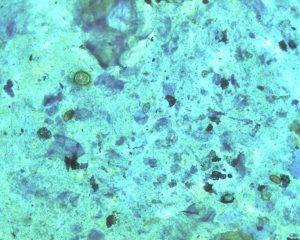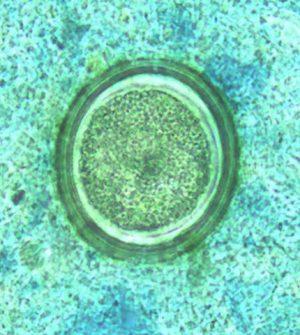Diarrhea for a week: Is this normal, causes, and treatment - Medical News Today
Diarrhea for a week: Is this normal, causes, and treatment - Medical News Today |
| Diarrhea for a week: Is this normal, causes, and treatment - Medical News Today Posted: 29 Oct 2020 12:00 AM PDT  Many cases of diarrhea resolve within a couple of days. Sometimes, however, it can persist for weeks. Diarrhea is the medical term for passing loose, watery stools at least three times a day. Short-term and longer-term diarrhea may have different causes and may consequently require specific treatments. This article provides information on how long diarrhea usually lasts and explores what causes this condition to persist for more than a week. We also outline home and medical treatments for diarrhea and offer advice on when to see a doctor. Most cases of diarrhea last 1–2 days, though some may last longer. The exact duration depends on the underlying cause. The National Institute of Diabetic and Digestive and Kidney Diseases (NIDDK) categorize the condition into three groups according to its duration:
Acute diarrhea often occurs due to a viral infection. These infections tend to clear up on their own within a few days. When a person first experiences diarrhea, they may not know whether the condition will be acute, persistent, or chronic. People with diarrhea from an infection may experience additional symptoms, such as: According to the NIDDK, persistent and chronic diarrhea may last more than a week. Both types may have different triggers. Causes of persistent diarrheaBelow are the most common causes of persistent diarrhea. InfectionsPersistent diarrhea can occur as a result of viral, bacterial, or parasitic infections. The table below shows the different types of pathogens that commonly cause diarrhea and how they may enter the body. Travelers' diarrheaTravelers' diarrhea (TD) is the medical term for diarrhea that results from consuming food or water contaminated with viruses, bacteria, or parasites. Its name originates from the fact that it typically develops when people travel to countries with poor sanitation. According to the NIDDK, TD typically causes acute diarrhea, though some parasitic infections may trigger persistent diarrhea. Medication side effectsCertain medications can cause diarrhea as a side effect. Examples include: Causes of chronic diarrheaWe explore potential triggers for chronic diarrhea below. InfectionsWithout treatment, certain bacterial and parasitic infections may cause chronic diarrhea. Following an infection, people may experience problems digesting certain carbohydrates and proteins. This can prolong the duration of diarrhea. Food allergies and intolerancesChronic diarrhea can sometimes indicate an underlying food allergy or intolerance. Food intolerance is when a person has difficulty digesting a particular food. This may lead to an upset stomach and diarrhea. Some common types of food intolerance include:
In addition to the above, some people may have difficulty breaking down types of sugar alcohol in some sugar-free products. Examples include:
Digestive conditionsChronic diarrhea can sometimes indicate an underlying issue within the digestive tract. Some digestive conditions that may cause chronic diarrhea include: Abdominal surgeryA person may develop chronic diarrhea after surgery on the following organs:
Long-term antibiotic useLong-term antibiotic use can also change the balance of good and bad gut bacteria. This can make a person more susceptible to infection with the diarrhea-causing bacteria Clostridium difficile. Below are some remedies that may ease diarrhea and its associated symptoms. Over-the-counter medicationThere are two main types of anti-diarrheal medication available without a prescription:
Changing the dietPeople with diarrhea may find that eating bland and easily digestible foods could provide nutrition while settling the stomach and alleviating symptoms. One such diet is the BRAT diet, which stands for bananas, rice, applesauce, and toast. Other foods that a person can eat while experiencing stomach upset include:
Learn more about the BRAT diet here. People should also avoid foods that could worsen gastric upset and diarrhea, such as:
Learn more about foods that can contribute to diarrhea here. Drinking plenty of fluidsDiarrhea can cause a person to lose fluids and essential electrolytes, which can lead to dehydration. Drinking plenty of fluids will help reduce this risk. These fluids include:
Treatments for persistent or chronic diarrhea depend on the underlying cause. Some possible causes and their treatment options are below. InfectionsA doctor may prescribe a course of antibiotics to treat a lingering bacterial infection, or an antiparasitic medication to manage a parasitic infection. Food allergies and intolerancesIf a person suspects they have a food allergy or intolerance, their doctor may recommend keeping a food diary. People can use their diary to record the foods they eat on a day-to-day basis, and the symptoms they experience. Over time, this will help them detect foods that may trigger their diarrhea. Treatment for a food allergy or intolerance typically involves avoiding known trigger foods. Digestive conditionsThe treatment for a digestive issue depends on the type of condition. Depending on the cause, it may involve one or more of the following:
The NIDDK recommend that people see a doctor if their diarrhea lasts more than 2 days, or if they pass six or more loose stools in 24 hours. A person should also seek medical attention for the following symptoms:
Diarrhea that lasts for more than a week may be persistent or chronic. Persistent diarrhea lasts for up to 4 weeks. This condition is typically the result of an infection or a side effect of medication. Chronic diarrhea refers to diarrhea that lasts for 4 weeks or more. There are many potential triggers for this issue, including untreated infections, food allergies and intolerances, and underlying digestive conditions. Anyone who experiences diarrhea that persists for more than 2 days should visit their doctor for a diagnosis and appropriate medical treatment. |
| Posted: 30 Oct 2020 08:27 AM PDT Humans may be able to dampen the worst effects of COVID-19, writes Tara Cepon-Robins, assistant professor of anthropology, in a new review article. We just need a little help from some old friends: parasitic intestinal worms. As Cepon-Robins explains in the paper – co-written with Theresa Gildner, assistant professor of anthropology for Washington University in St. Louis, and published by Evolution, Medicine and Public Health journal – humans share a long coevolutionary history with parasites like intestinal worms. In fact, an entire branch of the human immune system evolved not to fight back against parasites entirely, but to peacefully cohabitate with them.  Cepon-Robins and Gildner hypothesize that this immune system branch, when stimulated by parasites, could suppress inflammatory immune activity, thereby potentially reducing the severity of COVID-19 symptoms. The paper, titled "Old Friends Meet a New Foe: A potential role for immune-priming parasites in mitigating COVID-19 morbidity and mortality," studies whether the presence of soil-transmitted helminths – a common intestinal parasitic worm – causes human immune systems to reduce inflammation and decrease risk for inflammatory disorders like cardiovascular disease, autoimmunity and allergies. Reducing the inflammatory response to COVID-19 could have a critically important role, the paper explains, because the most severe symptoms associated with COVID-19 are overactive inflammatory immune responses. If left uncontrolled, those responses lead to cytokine storms, tissue damage and death. Though further research must be conducted, Cepon-Robins and Gildner conclude that the coexistence of a parasitic infection and COVID-19 could work to reduce the virus's morbidity and mortality. "When we first started learning about COVID-19, it became clear that the worst health outcomes occurred in people with inflammatory comorbidities, including heart disease, diabetes and autoimmunity," Cepon-Robins said. "This inspired us to propose an immune pathway by which soil-transmitted helminths might also help to protect people from the worst COVID-19 outcomes." "We hope this paper will inspire more research on the effects that soil-transmitted helminths might have on COVID-19 in endemic areas," she continued. "It is crucial that we work to understand the effects that these parasites may have on COVID-19 outcomes if we want to thoroughly understand the global impacts of the virus." Cepon-Robins conducts research among the Shuar of Amazonian Ecuador with the Shuar Health and Life History Project and in her own recently-developed project in the southeastern United States, the Rural Embodiment and Child Health Project. Her research combines technologies from microbiology, genetics and anthropology to understand the role that bacterial and helminth exposure play in immune function, growth, development and health. Read more about her research. Cepon-Robins is the first UCCS Boettcher Investigator in the Webb-Waring Biomedical Research Program, and the first anthropologist to earn the honor since the Boettcher Foundation established the program in 2010. |
| You are subscribed to email updates from "What is the most common parasitic infection" - Google News. To stop receiving these emails, you may unsubscribe now. | Email delivery powered by Google |
| Google, 1600 Amphitheatre Parkway, Mountain View, CA 94043, United States | |


Comments
Post a Comment